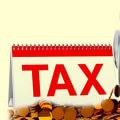In most cases, HMRC will automatically update your tax code when your income changes, for example, if you start a new job, start receiving a pension, or receive. If you believe your tax code is incorrect, contact HMRC, who will issue a revised tax code to your employer as needed. You can do this by phone (0300 200 3300) or online. Taxfiler allows accountants to simplify the filing process and easily file an online tax return directly to HMRC and Companies House.
It's very important to keep HMRC up to date on changes that may affect your tax situation, so that they can adjust your tax code; otherwise, you may not pay the right amount of tax. This can amount to hundreds of pounds, so it's important to check that you have the correct tax code. If your code number includes a “reduction to collect unpaid taxes” item, your coding notice will show the actual amount of unpaid taxes. This is a way to collect your income tax and National Insurance from your salary as you go, rather than submitting an annual tax return and settling your own taxes directly with HMRC.
HMRC must send you a notice with the code PAYE each year, unless HMRC considers that a PAYE source of income is not taxable, or if you are not required to tax any income from the PAYE source. Remember that if you are a Scottish taxpayer, your tax code will start with the letter “S”; if you are a Welsh taxpayer, your tax code will start with the letter “C”. HMRC “increases” that figure, multiplying by 100 and dividing by 20 (if you pay taxes at the base rate), and reduces your tax-free amount depending on the result, so you pay additional taxes on the gross figure. Instead of issuing new tax codes to millions of people, HMRC asks employers to simply increase by a certain amount all codes that end, for example, in letter L.
For example, you may be entitled to other allowances, such as the allowance for blind people, or you may have the right to apply for a tax relief for work. expenses, such as using your own car for business or professional subscriptions. A cumulative tax code can mean that your employer sometimes pays you a tax refund through the payroll, as shown in Emily's example. Instead, you will receive some benefit from the personal allowance in each pay period, but the likelihood that you will be overpaid or underpaid at the end of the tax year is reduced.
If the NT code is reused in subsequent fiscal years, it is likely that you will accrue a tax debt that you will have to pay. Every monthly payment of 200 pounds you receive on coffee is taxed at the basic rate of 20%, so after paying 40 pounds, Jake gets 160 pounds in his hand. Look at the examples of Tim, Heather and Jay to see how you can calculate what your tax should be based on your tax code. This is one of the reasons to take time to understand how PAYE works: you're more likely to detect errors and avoid underpaying or overpaying taxes.

